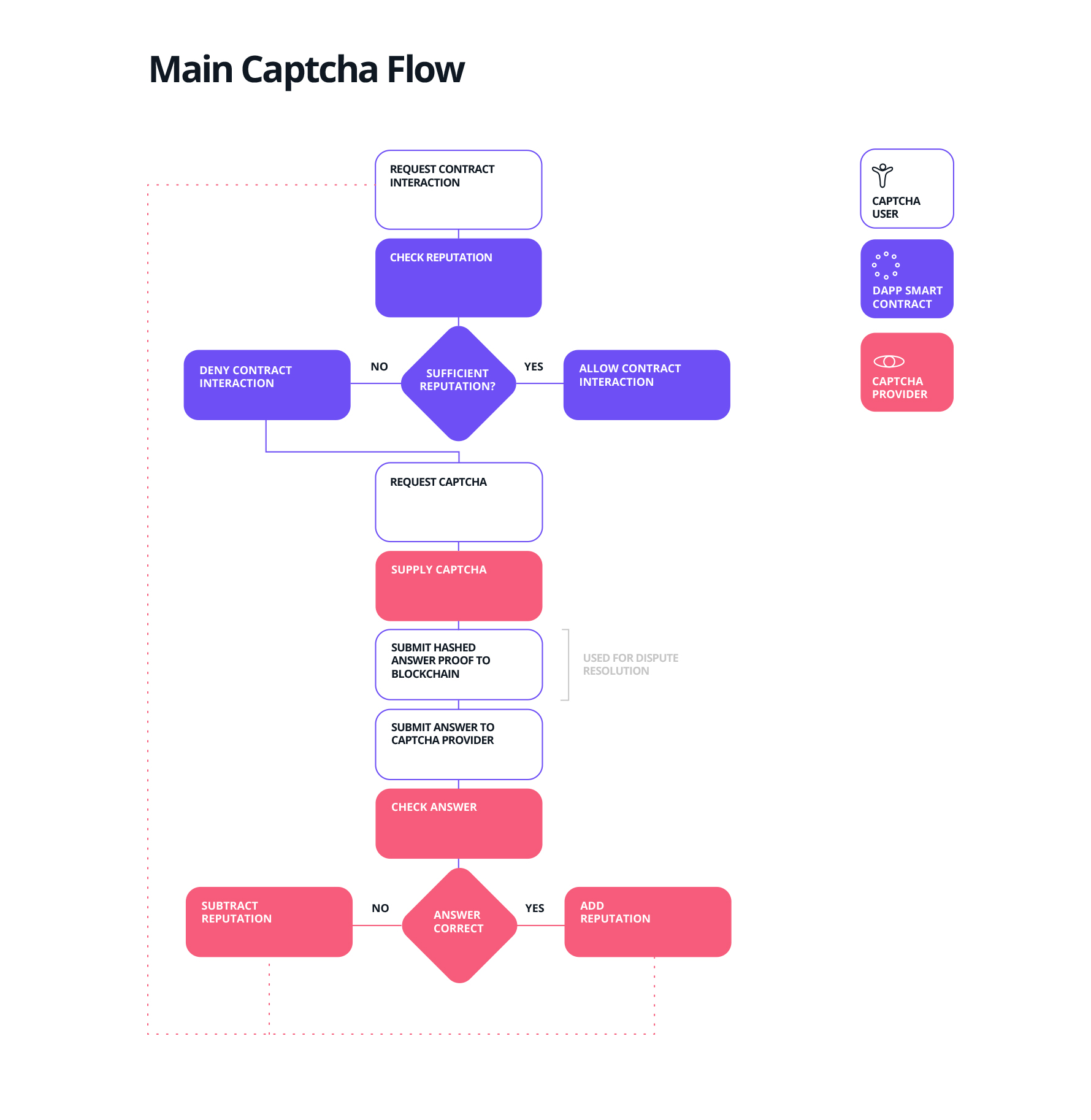Prosopo receives grant from Web3 Foundation to build human verification
We're delighted to announce that Prosopo recently received funding from the Web3 Foundation to help build our decentralised human verification marketplace. The Prosopo protocol , designed and built with our partner Gimly, will give Distributed Apps the power to secure their user traffic and prevent bot attacks, whilst retaining a high level of decentralisation. Services like Prosopo are the key to moving blockchain applications from the fringes of society to everyday parts of our lives.
Background
CAPTCHAs were developed because of online spam, fraud, and abuse by bad actors attempting to profit from system weaknesses. In the world of Distributed Apps (DApps), the same patterns of abuse will likely emerge, yet there is no distributed service available to DApps to verify humanlike behaviour.
Prosopo is designed to help human blockchain users prove their humanness whilst maintaining their privacy. Under the Prosopo model, Providers supply the market with CAPTCHAs and are rated by their ability to prevent bots and permit humans. Distributed Apps (DApps) implement CAPTCHAs as part of their contract interaction flow and their users receive reputation points for completing them. User reputation scores are stored on-chain and accessible to all Polkadot Dapps, for the benefit of the ecosystem. For a more detailed version, check out the Grant Application.
Milestone 1
The initial development began in October 2021 with the Prosopo Protocol smart contract, which will govern the marketplace economics. The contract is written in ink! due to its type safe and memory safe capabilities that are automatically inherited from Rust. ink! can also be compiled to WASM, a fast and efficient language created for the web. This increases the interoperability of contracts written in ink! as they can be deployed in any WASM Virtual Machine.
We have also created a prototype of the Prosopo provider node, which will form the network and perform the task of verifying users of Distributed Apps as being human or not. This node is designed to send solved and unsolved CAPTCHAs to the users of Distributed Apps so that they can verify themselves as being human. The Providers then update the Protocol smart contract, creating a queryable reputation based on the user's AccountId which the Distributed Application can use to confirm the user's humanesss via a cross-contract call. This process is highlighted below.

Lessons So Far
The learning curve to adapt to ink! was quite steep coming from the world of python and other garbage collected languages. However, we quickly realised the Rust compiler is your friend and following its tips will lead to successful code compilation. ink! is actually a subset of Rust so there are less things to worry about than if you were coding full Rust projects for the first time.
no-std
One of the most important things to highlight to ink! newbies is the no-std environment in Rust. This forces ink! to only load crates that are platform agnostic, meaning that simple tasks, such as printing variables, cannot necessarily be performed. Instead, contract development in ink! relies on specific environment functions such as ink_env::debug_println!("{}", "your string here"). Luckily, the example contracts demonstrate plenty of these useful functions.
Testing
Contract functionality has been tested utilising the ink! unit testing engine and the experimental test engine. The basic engine supports calling functions but lacks the ability to set a transferred token value or set the caller, which are both key parts of many of the Prosopo Protocol functions. Working with this combination, we've managed to cover >90% of the functions in our contract with tests, tarpaulin being used to calculate the coverage metrics.
Community
The ink! and Polkadot community is very helpful and responsive to questions surrounding development. Releases come frequent and fast but there are helpful notes that accompany them. You can usually find some guidance or a solution by chatting to the developers in their matrix server.
What's next?
We now have a basic backend marketplace to which verification Providers and Distributed apps can register but we're some way off deploying to any of the Polkadot parachains. Our roadmap for Milestone 2 of the Web3 Foundation grant and the future MVP is highlighted below:
Milestone 2
- Create a CAPTCHA frontend that can be embedded in a Distributed Application
- Create a demo website showing how users can embed the CAPTCHA challenge
MVP
- Migrate the contract to OpenBrush
- Work out a long term solution for contract upgradeability
- Perform load testing of the Provider node
- Introduce the economic governance system into the contract
- Partner with Polkadot parachains to help prevent bots
Fancy joining the team? We are also now hiring for a Software Engineer!